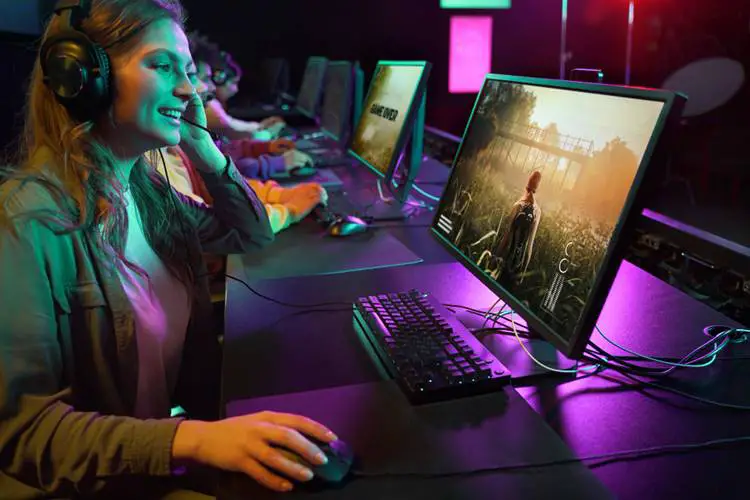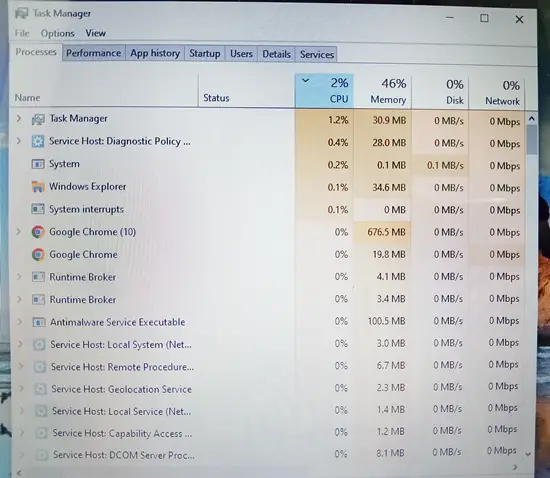High CPU usage can lead to sluggish gameplay, lag, and even system crashes while gaming. To enhance your gaming experience and prevent performance issues, it’s crucial to optimize your CPU usage. In this article, we will provide you with valuable tips and detailed solutions on how to reduce CPU usage while gaming, ensuring smooth gameplay and improved performance.
1. Update Graphics Drivers
Outdated graphics drivers can put unnecessary strain on your CPU. Visit the website of your graphics card manufacturer and download the latest drivers compatible with your gaming system. Regularly updating your drivers will enhance compatibility and efficiency, resulting in reduced CPU usage.
2. Adjust In-Game Graphics Settings
Lowering graphics settings in your games can significantly reduce CPU usage. Experiment with settings such as texture quality, shadow resolution, anti-aliasing, and particle effects. Find the right balance between visual quality and performance by prioritizing smooth gameplay over extravagant visuals.
3. Close Background Applications
Running multiple applications simultaneously can strain your CPU and consume resources. Before launching a game, close unnecessary background applications, especially resource-intensive programs like video editors or web browsers with numerous tabs. This will free up CPU resources, allowing your game to utilize them efficiently.
4. Disable Unnecessary Startup Programs
Some programs automatically launch during system startup, consuming CPU resources in the background. Use the Task Manager or System Configuration utility (msconfig) to disable unnecessary startup programs. This will reduce CPU usage while gaming and ensure your system focuses on delivering optimal performance for your games.
5. Monitor CPU Temperature
Overheating can cause your CPU to throttle, leading to increased CPU usage and reduced performance. To prevent overheating, monitor your CPU temperature using dedicated software and ensure it stays within safe limits. Clean your PC regularly to remove dust and ensure proper airflow. Consider investing in additional cooling solutions like CPU coolers or case fans if your system tends to overheat.
6. Optimize Power Settings
Adjusting your power settings can have a significant impact on CPU usage while gaming. Set your power plan to “High Performance” to ensure maximum CPU performance. Be aware that this may increase power consumption, so it’s recommended to keep your laptop or desktop plugged in while gaming.
7. Upgrade Your CPU or Graphics Card
If you consistently experience high CPU usage while gaming, it might be time to upgrade your hardware. Upgrading your CPU or graphics card can significantly improve performance and reduce CPU strain. Research compatible options that meet your gaming requirements and consult with professionals if needed.
8. Limit Frame Rate
Limiting the frame rate of your games can help reduce CPU usage. Lowering the frame rate will ease the CPU’s workload, resulting in smoother gameplay and reduced strain. Use in-game settings or third-party software to cap the frame rate at a level that suits your system configuration.
How to Reduce CPU Usage While Gaming: Conclusion
Reducing CPU usage while gaming is essential for a smooth and enjoyable gaming experience. By implementing the tips and solutions mentioned above, you can effectively reduce CPU usage and optimize your gaming performance. Remember, a well-optimized system ensures that your CPU can handle the demands of modern games, leading to an immersive gaming experience with minimal performance issues.
To wrap up, here’s how to reduce CPU usage while gaming:
- Update Graphics Drivers
- Adjust In-Game Graphics Settings
- Close Background Applications
- Disable Unnecessary Startup Programs
- Monitor CPU Temperature
- Optimize Power Settings
- Upgrade Your CPU or Graphics Card
- Limit Frame Rate


